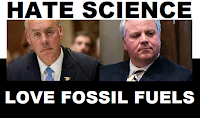The Design Challenge Weekend will take place on April 12-14, 2019, at the National Renewable Energy Laboratory in Golden, Colorado. The Solar Decathlon is a little known green building event that has been held every two years since 2002. After years in Irvine, California and Denver, Colorado the 2020 event is coming back to its original home in Washington, D.C.
The DOE's Solar Decathlon® is a collegiate competition, comprising 10 contests, that challenges student teams to design and build highly efficient and innovative buildings powered by renewable energy.
This competition forces students to create homes with market potential that are an innovative blend of architecture and engineering. These highly efficient buildings all rely on clean energy.
The 2019 Design Challenge Finalist include 47 teams, representing 38 collegiate institutions,
The collegiate institutions are:
Appalachian State University (Boone, North Carolina)
Ball State University (Muncie, Indiana)
California State University, Fullerton (Fullerton, California)
Carnegie Mellon University (Pittsburgh, Pennsylvania)
CEPT University (Ahmedabad, India)
Dr. Bhanuben Nanavati College of Architecture for Women (Pune, India)
Eastern Michigan University (Ypsilanti, Michigan)
Georgia Institute of Technology (Atlanta, Georgia)
Hampton University (Hampton, Virginia)
Illinois Institute of Technology (Chicago, Illinois)
Indiana University–Purdue University Indianapolis (Indianapolis, Indiana)
Jefferson University (Philadelphia, Pennsylvania)
Kansas State University (Manhattan, Kansas)
King Fahd University of Petroleum and Minerals (Dhahran, Saudi Arabia)
Miami University (Oxford, Ohio)
Michigan State University (East Lansing, Michigan)
State University of New York College of Environmental Science and Forestry (Syracuse, New York) Syracuse University (Syracuse, New York)
Technische Universität Berlin - EUREF Campus (Berlin, Germany)
Technological University of Panama (El Dorado, Panamá)
The Manchester School of Architecture (Manchester, England)
The Pennsylvania State University (Centre County, Pennsylvania)
The University of Arizona (Tucson, Arizona)
The University of Texas at Austin (Austin, Texas)
United States Military Academy at West Point (West Point, New York)
Universidade Federal do Paraná (Curitiba, Brazil)
University of Cincinnati (Cincinnati, Ohio)
University of Illinois at Urbana-Champaign (Champaign County, Illinois)
University of Minnesota Twin Cities (Minneapolis, Minnesota)
University of Missouri-Columbia (Columbia, Missouri)
University of Portland (Portland, Oregon) University of Wisconsin–Madison (Madison, Wisconsin) University of Wisconsin-Milwaukee (Milwaukee, Wisconsin)
Virginia Polytechnic Institute and State University (Blacksburg, Virginia)
Washington University in St. Louis (St. Louis, Missouri)
West Virginia University (Morgantown, West Virginia)
Western New England University (Springfield, Massachusetts)
Yale University (New Haven, Connecticut).
The DOE's Solar Decathlon® is a collegiate competition, comprising 10 contests, that challenges student teams to design and build highly efficient and innovative buildings powered by renewable energy.
This competition forces students to create homes with market potential that are an innovative blend of architecture and engineering. These highly efficient buildings all rely on clean energy.
The 2019 Design Challenge Finalist include 47 teams, representing 38 collegiate institutions,
The collegiate institutions are:
Appalachian State University (Boone, North Carolina)
Ball State University (Muncie, Indiana)
California State University, Fullerton (Fullerton, California)
Carnegie Mellon University (Pittsburgh, Pennsylvania)
CEPT University (Ahmedabad, India)
Dr. Bhanuben Nanavati College of Architecture for Women (Pune, India)
Eastern Michigan University (Ypsilanti, Michigan)
Georgia Institute of Technology (Atlanta, Georgia)
Hampton University (Hampton, Virginia)
Illinois Institute of Technology (Chicago, Illinois)
Indiana University–Purdue University Indianapolis (Indianapolis, Indiana)
Jefferson University (Philadelphia, Pennsylvania)
Kansas State University (Manhattan, Kansas)
King Fahd University of Petroleum and Minerals (Dhahran, Saudi Arabia)
Miami University (Oxford, Ohio)
Michigan State University (East Lansing, Michigan)
State University of New York College of Environmental Science and Forestry (Syracuse, New York) Syracuse University (Syracuse, New York)
Technische Universität Berlin - EUREF Campus (Berlin, Germany)
Technological University of Panama (El Dorado, Panamá)
The Manchester School of Architecture (Manchester, England)
The Pennsylvania State University (Centre County, Pennsylvania)
The University of Arizona (Tucson, Arizona)
The University of Texas at Austin (Austin, Texas)
United States Military Academy at West Point (West Point, New York)
Universidade Federal do Paraná (Curitiba, Brazil)
University of Cincinnati (Cincinnati, Ohio)
University of Illinois at Urbana-Champaign (Champaign County, Illinois)
University of Minnesota Twin Cities (Minneapolis, Minnesota)
University of Missouri-Columbia (Columbia, Missouri)
University of Portland (Portland, Oregon) University of Wisconsin–Madison (Madison, Wisconsin) University of Wisconsin-Milwaukee (Milwaukee, Wisconsin)
Virginia Polytechnic Institute and State University (Blacksburg, Virginia)
Washington University in St. Louis (St. Louis, Missouri)
West Virginia University (Morgantown, West Virginia)
Western New England University (Springfield, Massachusetts)
Yale University (New Haven, Connecticut).















